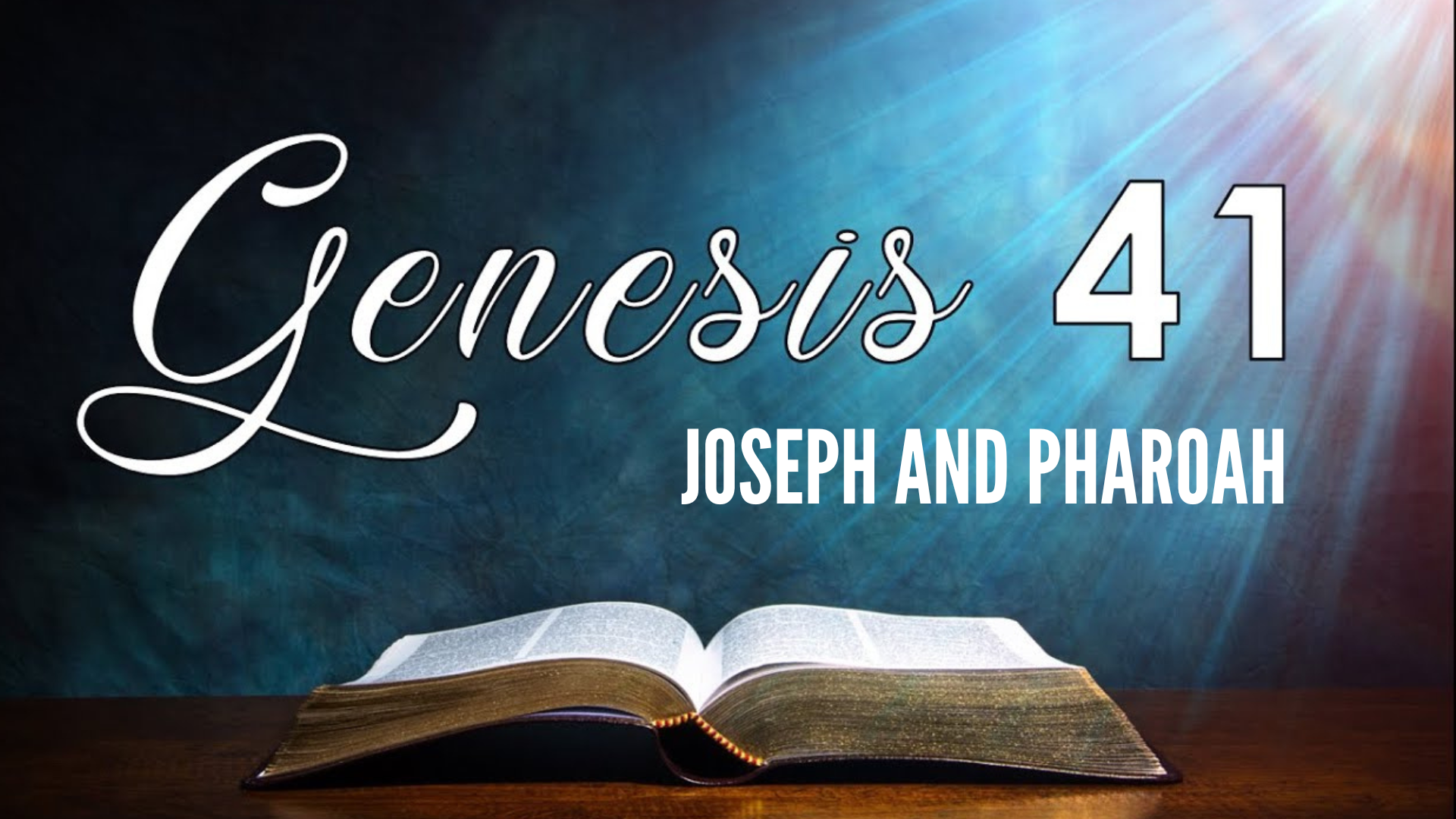BE FILLED WITH THE SPIRIT (Pentecost)
1. Filled With the Spirit (Numbers 11:24-29; Acts 2:1-4, 16-17)
2. Spirit-Filled Living (Acts 2:41-47; Ephesians 5:18-21; Galatians 5:22-25)
3. Spirit-Filled Unity and Service (Acts 4:31-35; 2 Corinthians 3:5-6)
Central Truth: Scripture commands Christians to be filled with the Holy Spirit.
Focus: Acknowledge that it is God’s will for every Christian to be filled wit the Holy Spirit, and live a Spirit-filled life.
Evangelism Emphasis: The Holy Spirit empowers Christians to be witnesses of Christ to the world.
Golden Text: “Be filled with the Spirit; speaking to yourselves in psalms and hymns and spiritual songs, singing and making melody in your heart to the Lord” (Ephesians 5:18-19).
INTRODUCTION
Frequently, when speaking of God’s will, we tend to think of specific actions such as vocations, marriage, even purchases. Today’s lesson directs our attention to God’s will for us in terms of the Holy Spirit’s active work in our lives. The specific objective is to acknowledge it is God’s will for every Christian to be filled with the Holy Spirit and live a Spirit-filled life.
This begins with the work of the Spirit in the Old Testament and ends with ministry in a New Testament congregation. This reminds us of the ongoing ministry of the Holy Spirit, which precedes the Day of Pentecost in Jerusalem and continues to this present day.
Since this is Pentecost Sunday, it is helpful to understand the background of Pentecost with its origin in Judaism. Pentecost is a feast observed fifty days after the Passover. Devout Jews believe this day marks the anniversary of God’s giving the Law. They carefully review the Torah (Pentateuch) and may stay up all night in order to do so.
In the New Testament era of the early church, Pentecost is the day when the promised Comforter descends on the gathered disciples. Obediently they have been waiting for ten days. During this time, prayer and unity prevail. Then they experience the baptism of the Holy Spirit with the initial evidence of speaking in tongues. Immediately the church grows as three thousand come to faith in Christ, initiating a new era of Spirit-filled living.
The Spirit-filled life isn’t to be just a part of history. God’s will is for each of us to daily live the Spirit-filled life. This enables us to live with confidence as we face difficulties. It also empowers us to be witnesses of the saving and keeping power of the Lord Jesus Christ.
While studying this lesson, pay attention to the diverse areas in which the Spirit-filled life can make a difference. It ranges from skills to community to worship. No dimension of our lives is to be separated from the impact of the Holy Spirit.
1. FILLED WITH THE SPIRIT
A. The Elders (Numbers 11:24-29)
25 And the Lord came down in a cloud, and spake unto him, and took of the spirit that was upon him, and gave it unto the seventy elders: and it came to pass, that, when the spirit rested upon them, they prophesied, and did not cease.
27 And there ran a young man, and told Moses, and said, Eldad and Medad do prophesy in the camp. 28 And Joshua the son of Nun, the servant of Moses, one of his young men, answered and said, My lord Moses, forbid them. 29 And Moses said unto him, Enviest thou for my sake? would God that all the Lord’s people were prophets, and that the Lord would put his spirit upon them!
It is difficult to realize the heavy load of leadership Moses bears as Israel progresses toward the Promised Land. Regardless of God’s miraculous provisions, the people repeatedly lapse into complaining. Often they direct it as a personal attack against Moses. The people’s griping over their continuous diet of manna finally becomes too much for him, and Moses pours out his frustration to God (vv. 4-10).
Moses feels God has placed too great a burden on him. He didn’t choose this position for himself. The people’s attitudes and actions make it similar to a father needing to carry a nursing child. There isn’t meat available to satisfy their appetites. Moses says he is unable to carry this burden alone. In fact, death appears to be more desirable than to continue on this path (vv. 11-15).
God doesn’t deal specifically with Moses in terms of what he feels or states. Instead, He gives Moses the plan of action to alleviate the distress. First, he is to gather the leaders of Israel and have them stand at the Tabernacle. Second, the Lord will take some of the spiritual anointing which covers Moses and put it on the elders. Third, the Spirit upon the elders will enable them to share in the burden of leadership. Fourth, the people are to sanctify themselves in preparation for divine provision. Fifth, God will provide meat which will last a whole month (vv. 16-20).
When the elders of Israel gather with Moses at the Tabernacle, they are given the Holy Spirit just as was upon their leader. Notice there is a verbal sign of this covering—they prophesy. It is an initial evidence which does not continue. The latter portion of verse 25 is most accurately translated “but they did not do so again” (NIV).
Two of the men listed as elders, Eldad and Medad, do not join the others at the Tabernacle. For some reason not stated, they are still in the camp when the Holy Spirit is given. However, that doesn’t matter. They receive Him where they are and begin to prophesy. A messenger runs to Moses with this information. Joshua, the right-hand man of Moses, misunderstands or misinterprets what is taking place. He sees it as being “out of order” or possibly insubordination to Moses’ leadership. In any case, he asks Moses to stop them.
Moses’ reply indicates his mature grasp of what is taking place. He isn’t threatened by these elders prophesying, even if it is in the camp away from the main group. This is a mighty blessing for individuals and for the whole nation. Moses desires for everyone to have this experience and empowerment.
How blessed we are to know that the fullness of the Holy Spirit is now available to all believers! We just need to be open to receiving and seek this blessing for service.
- Why do you suppose “the Lord came down in a cloud” (v. 25)?
- Explain Moses’ desire expressed in verse 29.
B. The Obedient (Acts 2:1-4)
1 And when the day of Pentecost was fully come, they were all with one accord in one place. 2 And suddenly there came a sound from heaven as of a rushing mighty wind, and it filled all the house where they were sitting. 3 And there appeared unto them cloven tongues like as of fire, and it sat upon each of them. 4 And they were all filled with the Holy Ghost, and began to speak with other tongues, as the Spirit gave them utterance.
When studying this passage, there is a tendency to emphasize the phenomena described in verses 2 and 3. It is hard to imagine what it would have been like to be in that room, more than likely rather crowded, and seen and heard what took place.
For today’s lesson, let’s focus on the people. Just prior to His ascension, Jesus directs His followers to go to Jerusalem and wait for the promised gift of the Holy Spirit (Luke 24:49; Acts 1:4-5). There is a definite place for this to take place, but no specific timetable other than “in a few days” (Acts 1:5 NIV). Obedient to His word, 120 of them gather in Jerusalem. Instead of scattering throughout the city, they wait as a unified body.
Acts 1:12-26 describes some of their activities. Foremost is their continued emphasis and commitment to prayer (v. 14). They also did some business by filling Judas’ vacant position in the Twelve. There’s no hint of their spending time in aimless waiting or casual visiting. They aren’t complaining about how much longer it will take.
In 2:1-4 the Holy Spirit comes upon this gathered group with audible and visual phenomena. The Holy Spirit enables them to speak languages they had never learned but could be understood by the various nationalities gathered in Jerusalem for the Feast of Pentecost.
- What two sounds testified to the Holy Spirit’s coming (vv. 2, 4)?
C. The Fulfillment (Acts 2:16-17)
16 But this is that which was spoken by the prophet Joel. 17 And it shall come to pass in the last days, saith God, I will pour out of my Spirit upon all flesh: and your sons and your daughters shall prophesy, and your young men shall see visions, and your old men shall dream dreams.
The events within the location where the believers were waiting for the promise apparently spills out into the streets. It quickly becomes evident to people in the area that a phenomenon is occurring. They respond with amazement, since they know these Galileans could not possibly be fluent in all the languages of their native areas (vv. 7-10).
Besides the amazement of the multitude witnessing this mighty outpouring, they also are perplexed. What is the significance or meaning? In response to the people’s questioning, the Twelve address the group. Beginning at verse 14, Peter stands out as the primary spokesperson, quickly pointing to the Scriptures. He announces with clarity their seeing the fulfillment of the prophecy of Joel 2:28-29. Though given centuries earlier, they now are privileged to witness its taking place.
Through the outpouring of the Holy Spirit, all can experience His ministry through them in what was previously limited to a select few. Neither gender nor age are qualifications for this blessing. All who “repent” and commit their life to Jesus Christ can “receive the gift of the Holy Spirit” (v. 38 NKJV).
The Eternal Spirit
The Holy Spirit is the eternal Spirit. He is the power of the present and the future, as well as the past. There is no need to escape to an idyllic past nor live in fear or dread of an uncertain postmodern future. A sovereign God has fully equipped Spirit-filled Christians to meet the demands and challenges of these times, and He holds the future in His hands.—John A. Sims, Our Pentecostal Heritage
2. SPIRIT-FILLED LIVING
A. A Fellowship Community (Acts 2:41-47)
42 And they continued stedfastly in the apostles’ doctrine and fellowship, and in breaking of bread, and in prayers. 43 And fear came upon every soul: and many wonders and signs were done by the apostles. 44 And all that believed were together, and had all things common.
47 Praising God, and having favour with all the people. And the Lord added to the church daily such as should be saved.
After the Day of Pentecost the fledgling church numbers over three thousand. There is no structured government other than the informal leadership of the Twelve. They have no church buildings, but they do have a bond of community. Verse 42 shows they follow a set of doctrinal beliefs. This centers on the life and teachings of Jesus as well as the Old Testament Scriptures. From this we see the importance of doctrine rather than personal experience being the foundation of the church. First Timothy 4:16 speaks clearly of this: “Watch your life and doctrine closely. Persevere in them, because if you do, you will save both yourself and your hearers” (NIV).
The early church’s fellowship is seen in their praying and eating together. Sharing food around a table provides an intimate approach which enables conversation to flow. It quickly becomes an opportunity to know others on a deeper level beyond the usual topics of the weather and various current events. Verse 46 of the text indicates this to be a regular, daily practice. Being in the same city and sharing the special relationship in Christ causes them to seek out each other. This verse also points to the attitude. These were joyous actions arising from sincere hearts.
This fellowship community then experiences marvelous spiritual results. The miraculous occurs regularly, and more individuals are accepting Christ and becoming part of the church. Note the positive response of those observing this body of believers. Christlike living, coupled with the joy of the Lord, impacts those with whom we come in contact.
- Describe the relationships of the early Christians (vv. 44-46).
B. A Worshiping Community (Ephesians 5:18-21)
18 And be not drunk with wine, wherein is excess; but be filled with the Spirit; 19 Speaking to yourselves in psalms and hymns and spiritual songs, singing and making melody in your heart to the Lord; 20 Giving thanks always for all things unto God and the Father in the name of our Lord Jesus Christ; 21 Submitting yourselves one to another in the fear of God.
Spirit-filled living must include the dimension of worship. To adore and offer our thanksgiving to the Sovereign Lord is to be an ongoing response of believers who are filled with the Holy Spirit and continuing to walk in His influence.
Verse 18 begins with a concept contrast. The apostle Paul points to those individuals who submit to the gratification of wine. They recklessly pursue the taste and short-lived excitement of heavy indulgence with significant negative results. In marked contrast to such a behavior, believers are encouraged to allow the continuance of the Holy Spirit’s guiding and fulfilling of their lives. We are to open ourselves daily to the divine impact of the Spirit.
“Speaking to one another” (v. 19 NKJV) through godly songs should be an ongoing part of the Spirit-filled life whenever and wherever believers are in the company of each other. Music is a universal language of cultures to express joy and sorrow. It is only logical for the melodies of the heart to be released into audible song.
The apostle Paul points to a variety of musical literature which is to fulfill our need and desire for expression. This should be a reminder to the worship leader in local congregations to use different types of music. The psalms mentioned here most likely refer to the Old Testament Psalms, which were a part of Jewish worship. Hymns very likely were the new songs written by believers in the early church to express doctrinal concepts. Spiritual songs refer to those that are testimonial, expressing an experience with God.
A worshiping community is also to be a thankful group of believers (v. 20). Thankfulness should include the “small things” of life as well as the larger, seemingly more important aspects.
Verse 21 teaches that submission to one another plays a part in a Spirit-filled community as we worship together. No one is exempt from being in submission to others. Divine order includes both leadership and submission “out of reverence for Christ” (NIV).
Keep Being Filled
There are many reasons why we need to be continually filled with the Holy Spirit. The greatest of these is that God demands it; it is a commandment of the Lord. The same God who said “be not drunk” also said “be filled.”—John D. Nichols
C. A Fruitful Community (Galatians 5:22-25)
22 But the fruit of the Spirit is love, joy, peace, longsuffering, gentleness, goodness, faith, 23 Meekness, temperance: against such there is no law. 24 And they that are Christ’s have crucified the flesh with the affections and lusts. 25 If we live in the Spirit, let us also walk in the Spirit.
Christ’s children experience a crucifixion of their sinful nature with its passions and desires. Since the Spirit has quickened us who were dead in our sins, it becomes our responsibility to practice the new life empowered by His presence within us. We can’t mature in Christ and fulfill His purpose if we sit by passively.
In verses 22-23, we see the spiritual “fruit” is singular, not plural. All the nine virtues listed here are part of a single whole. The implication is that no one can claim to be evidencing the fruit of the Spirit without working to cultivate each of the individual virtues.
Following is a brief statement of what each of these virtues demonstrates:
Love—the distinctive mark of the Christian, which is an act of the will God accomplishes through us
Joy—a cheerful gladness that flows from our salvation, regardless of our circumstances
Peace—the reconciliation with God that enables us to be free from tension, even when in conflict situations
Longsuffering (patience)—being forbearing and non-retaliatory, even when individuals deliberately attempt to provoke us
Gentleness—kindness and politeness that treats others with utmost respect
Goodness—inner character development expressed by moral and ethical values
Faith—faithfulness seen in loyalty and trustworthiness
Meekness (gentleness)—submissiveness and humility before God and others
Temperance (self-control)—self-mastery enabling one to control his or her thoughts and actions.
Here we see how the Holy Spirit longs to work in our lives as individuals and as a corporate body of believers. Our claim of the Spirit’s fullness in our lives must be reflected in words and actions.
- What does it mean to “walk in the Spirit” (v. 25)?
3. SPIRIT-FILLED UNITY AND SERVICE
A. Unity and Generosity (Acts 4:31-35)
31 And when they had prayed, the place was shaken where they were assembled together; and they were all filled with the Holy Ghost, and they spake the word of God with boldness. 32 And the multitude of them that believed were of one heart and of one soul: neither said any of them that ought of the things which he possessed was his own; but they had all things common.
After the disciples had praised and glorified God (see vv. 24-28), they presented to Him a single and a simple petition. They did not ask for deliverance from the threatenings of the Sanhedrin, or for protection from violence. They knew He would do this if it were His will for them. Their one petition was that He grant them boldness to preach His Word (vv. 29-30).
Unexpectedly the prayer was followed by a tremendous spiritual outpouring upon them. The place where they were gathered was shaken, and the disciples were filled anew with the Holy Spirit. This does not indicate there had been any diminution of the Spirit in their lives since the Day of Pentecost; there was nothing lacking in spiritual fullness. But this powerful repetition of the infilling further emboldened the disciples to speak His Word in the face of danger.
The common sharing of goods which the Christians had begun earlier (2:44-45) was greatly increased in the face of danger. The Christians sold their houses and lands, pooled their resources, and lived together in unity. Because they were fully united in faith, purpose, and service, the common sharing of material goods was both desirable and spontaneous. No member of the church desired to have more than any other.
Despite the danger they faced, the disciples of Christ enjoyed a glorious period of power and growth (4:33). The unity of the church was not a pretense, for the people worshiped, worked, believed, and shared together. Growth and grace were the consequence of this unity and fellowship. The emphasis of their ministry was the resurrection of Jesus. This was the great hope and confidence of the church then, and it still is today.
- Explain the significance of “great grace” (v. 33).
- Why were there “no needy persons among them” (v. 34 NIV)?
B. Able Ministers (2 Corinthians 3:5-6)
5 Not that we are sufficient of ourselves to think any thing as of ourselves; but our sufficiency is of God; 6 who also hath made us able ministers of the new testament; not of the letter, but of the spirit: for the letter killeth, but the spirit giveth life.
In verses 1-3, the apostle Paul said he did not need “letters of recommendation” to prove the legitimacy of his ministry. Instead, he said the Corinthian converts themselves were “our letter, written on our hearts, known and read by everybody” (NIV).
In verse 5 he makes it clear that he could not boast of his success in ministry, for his “sufficiency”—competence, capability, qualification—“is of God.” He had no competence in himself to claim anything for himself. When we as Christians realize our ability to minister to others comes from Christ and we are willing to glorify Christ for what He accomplishes through us, we will find success in our service.
Paul said God “has made us competent as ministers of a new covenant” (v. 6 NIV). This “new covenant” is the gospel of Jesus Christ—the message that “giveth life” by the Holy Spirit.
We as members of the church of Christ have been entrusted with the Gospel. It is written on our hearts, transforming us into messengers of the good news who can eternally influence other people through the competence Christ gives us.
- Explain the sufficiency or competence of believers.
THE PROMISE IS FOR YOU
We need the baptism in the Spirit today just as much as they [the first Christians] needed it. The world is just as hostile against the cause of Christ, and we are just as weak when we attempt to serve Him in our own power.
The baptism with the Holy Spirit is for you today. God wants to accomplish in your life what He has been promising His people for generations. There is no reason why you should have to wait any longer. The promise is for you.—Horace S. Ward, Power for Living
Daily Devotions
M. God’s Spirit in a Ruler (Genesis 41:37-43)
T. Artisans Enabled by the Spirit (Exodus 31:1-6)
W. Spirit-Anointed King (2 Samuel 23:1-5)
T. Filled Again With the Spirit (Acts 4:23-33)
F. Gentiles Receive the Spirit (Acts 10:44-48)
S. Living in the Spirit (Galatians 5:16-25)
Adopted from the Evangelical Sunday School Lesson Commentary 2020-2021.









